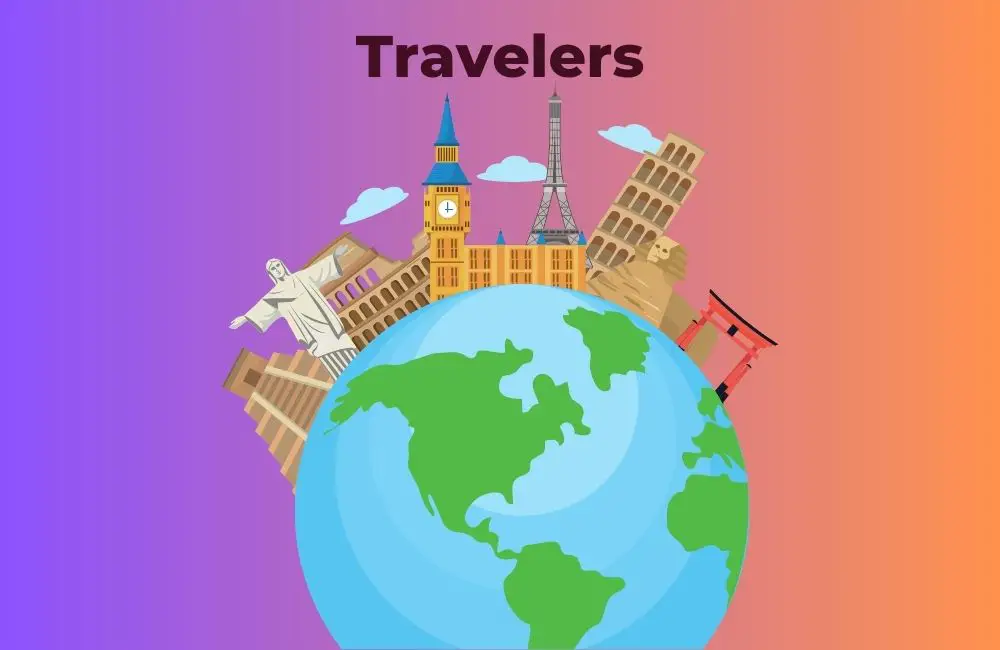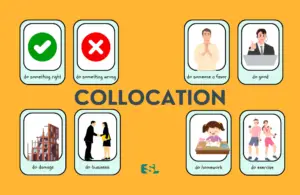Traveling opens up new horizons and presents opportunities for enriching and enlightening experiences. To make the most out of these experiences, having a basic understanding of travel-related vocabulary can prove to be incredibly beneficial. This article is designed to enhance your travel vocabulary, making it easier for you to communicate while on the go.
Table of Contents
- Basic Travel Terms
- Accommodation Vocabulary
- Food and Dining Vocabulary
- Vocabulary for Sightseeing
- Travel Safety Vocabulary
- Vocabulary for Shopping and Souvenirs
- Sample Conversation: Discussing Travel Plans and Vocabulary
- Conclusion
- 10 Frequently Asked Questions Related to Vocabulary for Travelers
If you are searching for an effective English language vocabulary builder, try Word Power Made Easy: The Complete Handbook for Building a Superior Vocabulary (Amazon Link). This time-tested classic has helped millions achieve mastery of English and improve their communication skills in business, the classroom, and in life.
Basic Travel Terms
In this section, we cover some fundamental travel-related words and phrases that you might use in a variety of travel situations.
| Word/Phrase | Meaning/Usage | Example sentences |
|---|---|---|
| Departure | The act of leaving a place, especially to start a journey. | Our departure time is at 10 AM. |
| Arrival | The act of coming to a place, especially at the end of a journey. | Our estimated arrival time is 8 PM. |
| Itinerary | A planned route or journey. | I have just finished planning our itinerary for the trip. |
| Destination | The place to which someone or something is going or being sent. | Our destination is the Grand Canyon. |
| Transit | The act or process of moving from one place to another. | We will be in transit for about 12 hours. |
| Layover | A period of rest or waiting before a further stage in a journey. | We have a 2-hour layover in Chicago. |
| Jet Lag | A physical condition caused by crossing time zones during travel. | I have terrible jet lag after flying from New York to Tokyo. |
| Backpacking | Travel or hike carrying one’s belongings in a backpack. | I went backpacking across Europe last summer. |
| Expedition | A journey or voyage undertaken by a group of people with a particular purpose. | They went on an expedition to the Arctic. |
| Sightseeing | The activity of visiting places of interest in a particular location. | We went sightseeing in Rome. |
| Tourist | A person who is traveling or visiting a place for pleasure. | The city was full of tourists. |
Accommodation Vocabulary
Finding the perfect place to rest your head is crucial. Here are some words and phrases related to accommodations.
| Word/Phrase | Meaning/Usage | Example sentences |
|---|---|---|
| Reservation | An arrangement to have something (such as a hotel room) held for your use at a later time. | I have a reservation at the Hilton. |
| Check-in | The act of confirming your arrival at a hotel, airport, etc. | The check-in time at our hotel is 3 PM. |
| Check-out | The act of leaving your hotel room at the end of your stay. | The check-out time is 11 AM. |
| Double Room | A hotel room that has a bed large enough for two people. | We booked a double room. |
| Single Room | A hotel room that has a bed for one person. | I need a single room for my stay. |
| Suite | A set of rooms designated for one person’s or family’s use or for a particular purpose. | We booked a suite for our honeymoon. |
| Hostel | A budget-oriented, shared-room (“dormitory”) accommodation that accepts individual travelers. | We stayed in a hostel to save money. |
| Inn | A small hotel or pub, especially in a rural area. | We stayed at a charming inn in the countryside. |
| Bed and Breakfast (B&B) | A small lodging establishment that offers overnight accommodation and breakfast. | We stayed at a B&B on our road trip. |
| Airbnb | A company which operates an online marketplace for lodging, primarily homestays for vacation rentals, and tourism activities. | We rented an Airbnb for our vacation. |
Food and Dining Vocabulary
Trying new foods is one of the most exciting aspects of travel. Here are some words to help you navigate local dining experiences.
| Word/Phrase | Meaning/Usage | Example sentences |
|---|---|---|
| Menu | A list of dishes available in a restaurant. | Can I see the menu, please? |
| Cuisine | A style or method of cooking, especially as characteristic of a particular country, region, or establishment. | Italian cuisine is my favorite. |
| Vegetarian | A person who does not eat meat, and sometimes other animal products, especially for moral, religious, or health reasons. | Do you have any vegetarian options on your menu? |
| Vegan | A person who does not eat or use animal products. | I’m a vegan, so I can’t eat this cheese. |
| Allergic | Having an allergy to a particular substance. | I’m allergic to peanuts. |
| Waiter/Waitress | A man/woman who serves customers at their tables in a restaurant. | Could you get the waiter’s attention, please? |
| Tip | An amount of money that is given to a worker such as a waiter or waitress who provides service. | It’s customary to give a 15-20% tip. |
| Buffet | A meal consisting of several dishes from which guests serve themselves. | The hotel offers a buffet breakfast. |
| A la carte | Listing or serving food that can be ordered as separate items, rather than part of a set meal. | We ordered a la carte. |
| Reservation | An arrangement to secure accommodation at a restaurant or hotel. | We made a reservation for dinner at 7. |
Vocabulary for Sightseeing
Here are some terms that might come in handy when visiting tourist spots or attractions.
| Word/Phrase | Meaning/Usage | Example sentences |
|---|---|---|
| Landmark | An object or feature of a landscape or town that is easily seen and recognized from a distance. | The Eiffel Tower is a famous landmark in Paris. |
| Museum | A building where objects of historical, scientific, artistic, or cultural interest are stored and exhibited. | We visited the museum to learn about local history. |
| Art Gallery | A room or building for the display or sale of works of art. | The art gallery had an impressive collection. |
| Heritage Site | A natural or man-made site, area, or structure recognized as being of outstanding international importance and therefore deserving special protection. | The Great Wall of China is a UNESCO World Heritage Site. |
| Tour Guide | A person who provides assistance, information on cultural, historical and contemporary heritage to people on organized tours. | The tour guide explained the history of the castle. |
| Exhibition | A public display of works of art or items of interest, held in an art gallery or museum or at a trade fair. | We went to an exhibition of ancient artifacts. |
| Admission Fee | The amount of money that you pay to enter a place. | The admission fee for the park is $10. |
| Souvenir | Something that is kept as a reminder of a person, place, or event. | I bought a souvenir from every country I visited. |
| Scenic Route | A route that is chosen because it is more beautiful and enjoyable, rather than the quickest way. | We took the scenic route through the mountains. |
| Tourist Trap | A place that has been created to attract tourists and encourage them to spend money. | The city center is a bit of a tourist trap. |
Travel Safety Vocabulary
Safety is a major concern when traveling. Here are some words related to travel safety.
| Word/Phrase | Meaning/Usage | Example sentences |
|---|---|---|
| Travel Insurance | Insurance that is intended to cover medical expenses, trip cancellation, lost luggage, flight accident and other losses incurred while traveling. | I always buy travel insurance before a trip. |
| Emergency | A serious, unexpected, and often dangerous situation requiring immediate action. | In case of an emergency, dial the local emergency number. |
| Embassy | The official residence or office of an ambassador. | If you lose your passport, contact your embassy immediately. |
| Scam | A dishonest scheme or fraud. | Be aware of common travel scams. |
| Pickpocket | A thief who steals goods out of a person’s pockets without them noticing. | Beware of pickpockets in crowded areas. |
| Lost and Found | The place where lost items are kept until they are reclaimed by their owner. | I left my hat on the bus, but luckily it was in the lost and found. |
| First Aid Kit | A collection of supplies and equipment for use in giving first aid. | I always carry a first aid kit when I travel. |
| Vaccination | Treatment with a vaccine to produce immunity against a disease. | I got all the necessary vaccinations before my trip. |
| Visa | An endorsement on a passport indicating that the holder is allowed to enter, leave, or stay for a specified period in a country. | I had to apply for a visa for my trip to China. |
| Customs | The place at a port, airport, or frontier where officials check incoming goods, travelers, or luggage. | I had to declare my purchases at customs. |
Vocabulary for Shopping and Souvenirs
Last but not least, shopping is an integral part of travel for many. Here are some phrases you might need while shopping abroad.
| Word/Phrase | Meaning/Usage | Example sentences |
|---|---|---|
| Bargain | An agreement between parties settling what each will give and take or perform and receive in a transaction. | I managed to bargain the price down to $20. |
| Duty-Free | Goods that are exempt from duty when bought at an airport or on a ship. | I bought some perfume from the duty-free shop. |
| Currency | A system of money in general use in a particular country. | What’s the local currency here? |
| Exchange Rate | The value of one currency for the purpose of conversion to another. | What’s the exchange rate for dollars to euros? |
| Souvenir Shop | A shop where tourists can buy gifts and mementos. | I bought a postcard from the souvenir shop. |
| Sales Tax | Tax on sales or on the receipts from sales. | Is sales tax included in the price? |
| Receipt | A document acknowledging that a person has received money or property in payment. | Can I have a receipt, please? |
| Refund | Pay back (money), typically to a customer who is not satisfied with goods or services bought. | Can I get a refund for this? |
| Credit Card | A small plastic card issued by a bank, business, etc., allowing the holder to purchase goods or services on credit. | Can I pay with credit card? |
| Cash | Money in coins or notes. | Do you accept cash? |
To elevate your vocabulary in just 30 days, I recommend to my students an informative, fun, and accessible guide to utilizing powerful language. Millions of individuals have enhanced their academics, job skills, and confidence by dedicating just fifteen minutes daily to the exercises and tests of 30 Days to a More Powerful Vocabulary (Amazon Link), a top-selling. It offers step-by-step methods to bolster language prowess, discover compelling words, and daily vocabulary enhancement with pronunciation guidance.
Sample Conversation: Discussing Travel Plans and Vocabulary
Situation: At a cafe, Maya and Alex are planning their backpacking trip across Europe.
Maya: Hey Alex! I’ve been researching some itineraries for our trip. It seems like starting in Lisbon and then making our way east could be a great route.
Alex: That sounds exciting! I’ve heard that the hostels in Prague are pretty affordable and centrally located. We should definitely check them out.
Maya: Absolutely. I’ve also been brushing up on some essential phrases in various languages. You know, the basics like “hello,” “thank you,” and “how much?”
Alex: That’s a good idea. Being able to ask for directions or understand public transport schedules can be a lifesaver. Plus, the locals appreciate it when you make an effort with their language.
Maya: Definitely! Oh, and I found this app that helps with currency conversion. It’ll come in handy when we’re budgeting or shopping.
Alex: Perfect! With all this prep, our journey is set to be smooth and memorable. Can’t wait!
Conclusion
This article aimed to provide you with an extensive travel vocabulary to enrich your journey and ease your communication while traveling. Familiarizing yourself with these words and phrases can greatly enhance your travel experience and make your journeys more enjoyable and efficient. Happy travels!
10 Frequently Asked Questions Related to Vocabulary for Travelers
1. What are “itineraries” in the context of traveling?
An itinerary refers to a planned route or journey, detailing the places one intends to visit and the sequence in which they’ll be visited.
2. What does “hostel” mean?
A hostel is a budget-friendly accommodation option, often with shared rooms and communal facilities, popular among backpackers and solo travelers.
3. Why are “essential phrases” important for travelers?
Knowing essential phrases in the local language can help travelers navigate unfamiliar places, interact with locals, and handle emergencies.
4. How are “directions” typically given in foreign countries?
Directions can be given using landmarks, street names, or using terms like “left,” “right,” “straight ahead,” and “around the corner.”
5. What does “public transport” include?
Public transport refers to transportation services available to the general public, including buses, trains, subways, and trams.
6. Why is “currency conversion” important for travelers?
Currency conversion helps travelers understand the value of foreign currency in terms of their home currency, aiding in budgeting and transactions.
7. What are “landmarks” in a city?
Landmarks are recognizable and historically significant structures or places within a city, often used as reference points.
8. How can travelers avoid “tourist traps”?
By researching destinations in advance, seeking local recommendations, and being wary of overly commercialized areas, travelers can avoid places that are overly expensive or inauthentic.
9. What’s the difference between a “guided tour” and “self-guided tour”?
A guided tour is led by a local expert or guide, providing insights and information. In contrast, a self-guided tour is where travelers explore on their own, often using maps or apps.
10. Why is understanding “local customs” important?
Being aware of local customs ensures travelers are respectful, avoids unintentional offenses, and enriches the travel experience by immersing in the local culture.






